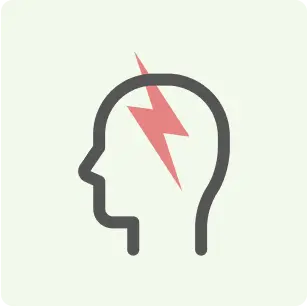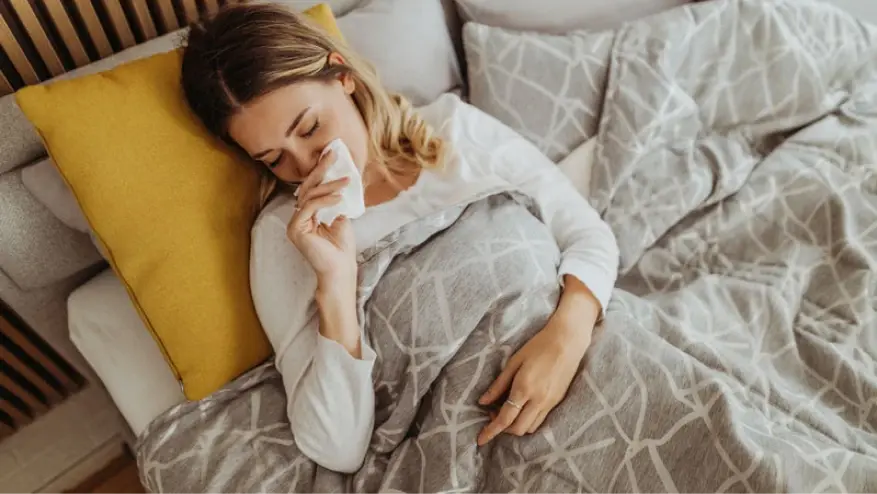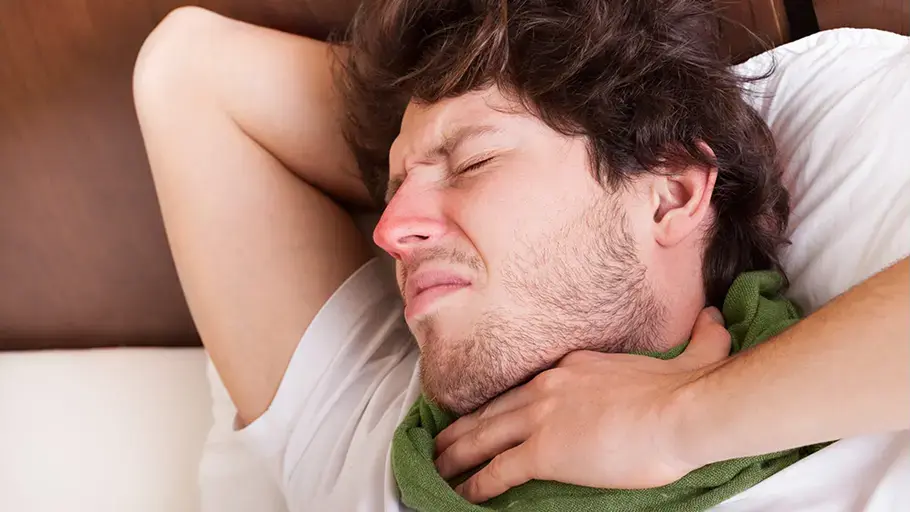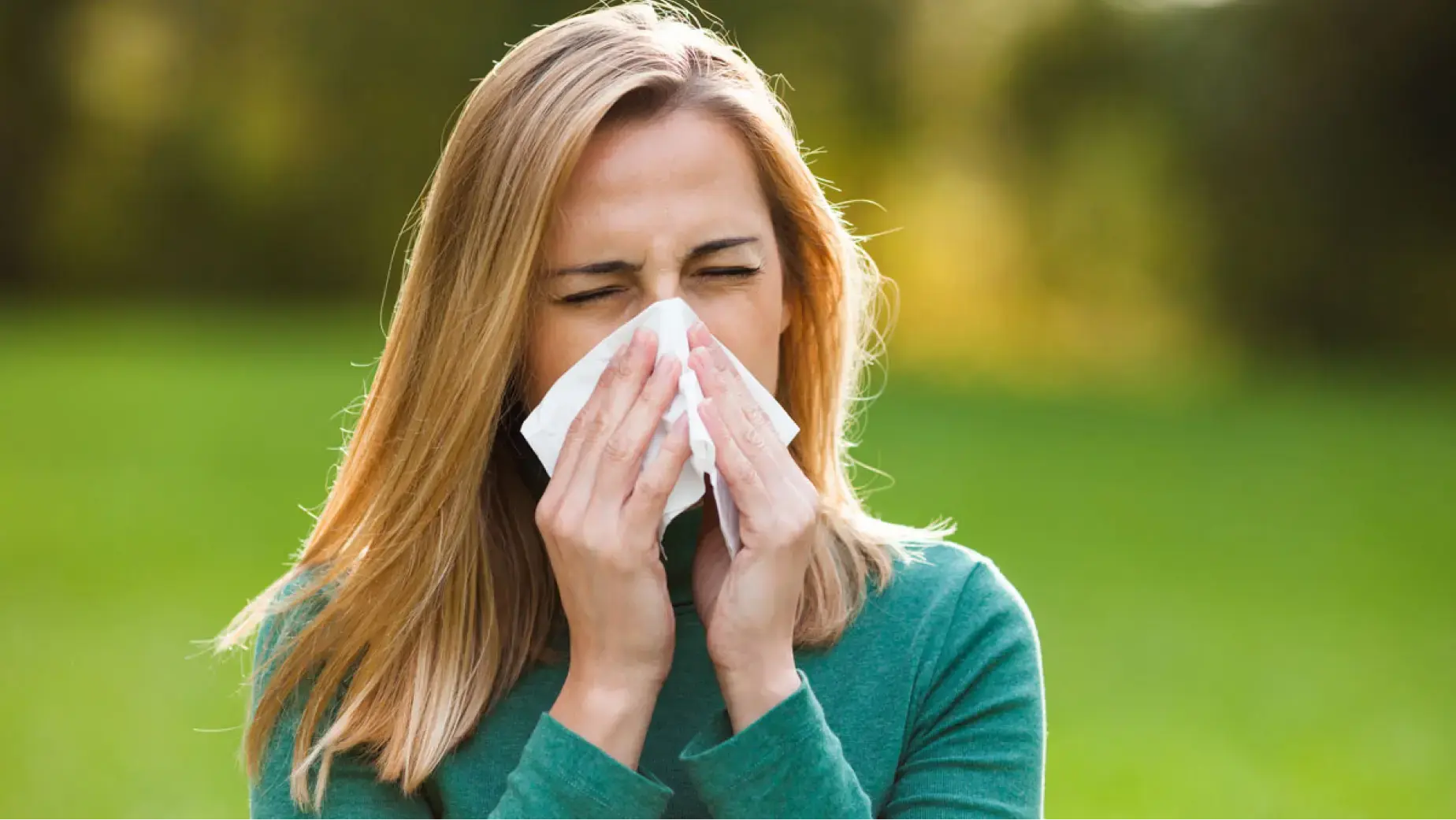Differences between allergies and COVID-19
Allergies are a reaction to something in your environment, like pollen, pet dander, or dust5. Allergies are not contagious. COVID-19 however, is a contagious disease caused by a virus.
While both allergies and COVID-19 symptoms can feel the same, there are some key differences you should understand to help you determine which may be causing your symptoms. However, the best way to know for sure if you have COVID-19 is to get tested. It is recommended to reach out to your Healthcare Provider to know for sure if you have allergies.
Symptoms of both allergies and COVID-19
Here are some of the symptoms that are common to both allergies and COVID-19:

Cough1,2,3
Runny or stuffy nose1,2,3

Headaches1,2,3
Symptoms like sore throat and loss of taste or smell are also much more common with COVID-19 than with allergies. You may feel a sore throat with allergies, but this is likely caused by post-nasal drip.
COVID-19 can cause shortness of breath or difficulty breathing. These are not typically symptoms of seasonal allergies, unless you have asthma that can be triggered by pollen exposure4.
Allergies vs COVID-19 symptoms
Symptoms more common with COVID-19 than allergies include:
Nausea1
Diarrhea1
Vomiting1
Fever/chills1
Muscle or body aches1
Symptoms of allergies but not COVID-19 include:
Sneezing2,3

Itchy nose, eyes, mouth, or inner ear2,3
Watery eyes2,3
How to tell if It’s COVID-19 or allergies
If you’re not sure whether you have allergies or COVID-19, here are some things to consider besides your symptoms:
Have you been recently exposed to someone with COVID-19?
Do your symptoms start to improve when you take over-the-counter allergy medication, such as ZYRTEC®?
Have you been taking allergy medication, but your symptoms aren’t improving?
Seasonal considerations
The time of year can also be a clue to help determine the cause of your symptoms.
Allergies are most common when pollen levels are high. Many people experience allergies in the spring while others may be afflicted in the summer, fall or even winter depending on their triggers.6
Viruses like COVID-19 can spread at any time of year but spread faster in cold weather.
Testing and professional guidance
If you’re still not sure whether you have allergies or COVID-19, the best thing to do is to get tested for COVID-19. You can get a PCR test at a doctor’s office or urgent care clinic, or you can buy an at-home antigen test1.
If you think you might have allergies, talk to your doctor. They can confirm whether you have seasonal allergies and recommend the best treatment for your symptoms.
Managing your allergy symptoms
If you have allergies, there are things you can do to manage your symptoms and reduce your risk of confusion with ailments with similar symptoms, such as COVID-19:
Avoid allergy triggers
Limit your exposure to triggers, such as pollens or mold, as much as possible. Keep windows and doors closed during allergy season and stay indoors during peak pollen times. Take a shower and change your clothes after outdoor activities.
Medication for symptom relief
Over-the-counter medications like the ZYRTEC® or ZYRTEC-D® can help alleviate symptoms.
Lifestyle changes
Reduce your exposure to allergens at home by vacuuming and dusting regularly, changing your bedding and towels often, and using a HEPA filter in your home.
Talk to a healthcare provider
If your allergy symptoms persist, talk to your doctor. They can recommend a personalized treatment plan.
References
https://www.mayoclinic.org/diseases-conditions/allergies/symptoms-causes/syc-20351497
https://acaai.org/allergies/allergic-conditions/seasonal-allergies/
https://www.cdc.gov/coronavirus/2019-ncov/downloads/10things.pdf
Links to other parties’ articles and websites are provided for convenience only. Kenvue is not responsible for their content.




